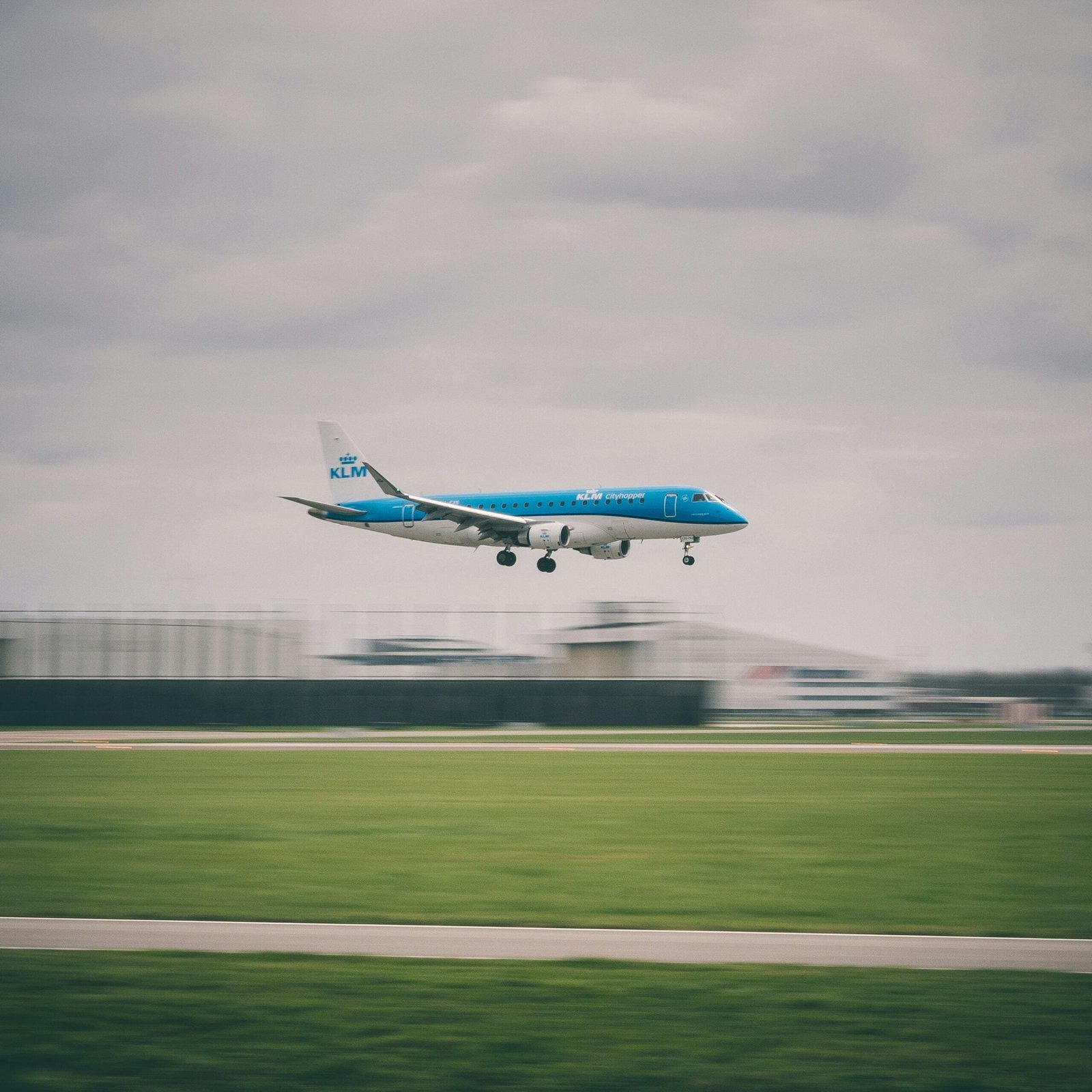

To embark on the journey to become a commercial pilot in India, it is important to understand the eligibility criteria.
Eligibility Criteria for Commercial Pilot
To become a commercial pilot in India, you need to meet certain eligibility criteria. These criteria may vary slightly depending on the flight training institute or aviation authority, but generally include the following:
- Age: You must be at least 17 years old to apply for a Student Pilot License (SPL), 18 years old for a Private Pilot License (PPL), and 21 years old for a Commercial Pilot License (CPL).
- Educational Qualifications: You must have completed your 10+2 education with Physics and Mathematics as compulsory subjects. Some institutes may require a minimum percentage in these subjects.
- Medical Fitness: You must undergo a medical examination conducted by a designated medical practitioner to ensure you meet the medical fitness standards set by the Directorate General of Civil Aviation (DGCA).
- English Proficiency: You must be proficient in the English language, as it is the international language of aviation.
It is important to note that meeting the eligibility criteria is just the first step towards becoming a commercial pilot. The process involves several stages, including flight training, theoretical exams, and practical exams.
Entrance Exam
In addition to fulfilling the eligibility criteria and completing the flight training, aspiring commercial pilots in India are required to clear an entrance exam. The entrance exam is conducted by the aviation authority or the flight training institute and assesses the candidate’s knowledge and aptitude for flying.
The entrance exam generally includes multiple-choice questions and may cover subjects such as Mathematics, Physics, English, and General Knowledge. It is important to prepare thoroughly for the entrance exam to increase your chances of success.
Mathematics section
When it comes to the Mathematics section of the entrance exam, candidates can expect questions on topics such as algebra, geometry, trigonometry, and calculus. It is crucial to have a strong foundation in these areas and be able to solve complex problems quickly and accurately. Brushing up on key mathematical concepts and practicing with sample questions can help candidates improve their performance in this section.
Physics section
The Physics section of the entrance exam focuses on concepts related to mechanics, thermodynamics, optics, and electromagnetism. Candidates should have a good understanding of these principles and be able to apply them to solve problems. It is advisable to revise key formulas and concepts and practice solving physics problems to excel in this section.
English section
The English section of the entrance exam evaluates the candidate’s proficiency in the language. It may include questions on grammar, vocabulary, comprehension, and verbal reasoning. Candidates should work on improving their reading and comprehension skills, as well as their vocabulary and grammar knowledge. Regular practice of English language exercises and mock tests can help candidates perform well in this section.
General Knowledge section
The General Knowledge section of the entrance exam covers a wide range of topics, including current affairs, history, geography, science, and technology. Staying updated with the latest news and events, reading newspapers and magazines, and referring to general knowledge books can help candidates prepare for this section. It is important to have a broad knowledge base and the ability to answer questions on various topics.
Overall, preparing for the entrance exam requires dedication, hard work, and a systematic approach. It is advisable to create a study plan, allocate sufficient time for each subject, and practice regularly. Additionally, seeking guidance from experienced instructors or joining coaching classes can provide valuable insights and help candidates improve their performance in the entrance exam.
practical flying experience.
Apart from the theoretical knowledge, it is important to gain practical flying experience. To obtain a CPL, you must complete a minimum of 200 hours of flight training, which includes both solo and dual flights. This training is usually conducted at flying clubs or aviation academies that are approved by the DGCA. The flight training covers various aspects of flying, including take-offs, landings, navigation, emergency procedures, and instrument flying.
During the flight training, you will also undergo a series of tests and examinations to assess your flying skills. These assessments include both written exams and practical flight tests conducted by certified examiners. It is essential to demonstrate proficiency in handling the aircraft and following standard operating procedures to pass these tests.
Once you have completed the required flight training and passed all the exams, you can apply for the CPL from the DGCA. The application process involves submitting the necessary documents, including your educational certificates, medical fitness certificate, and flight training records. After a thorough evaluation, the DGCA will issue the CPL, which allows you to fly commercial aircraft as a professional pilot.
Becoming a commercial pilot in India is a challenging yet rewarding journey. It requires dedication, perseverance, and a passion for aviation. By fulfilling the eligibility criteria, clearing the entrance exam, and completing the necessary flight training, you can turn your dream of soaring through the skies into a reality.
The Process of becoming Commercial Pilot
The process of becoming a commercial pilot in India can be divided into the following stages:
1. Student Pilot License (SPL)
The first step towards becoming a commercial pilot is obtaining a Student Pilot License (SPL). To obtain an SPL, you need to:
- Apply to a flight training institute approved by the DGCA.
- Complete the medical examination to ensure you meet the medical fitness standards.
- Pass a written examination conducted by the DGCA, which covers subjects such as Air Regulations, Aviation Meteorology, Air Navigation, and Aircraft Systems.
- Undergo a minimum of 20 hours of flight training, including at least 10 hours of solo flying.
Once you have obtained your SPL, you can start your flight training to obtain a Private Pilot License (PPL).
2. Private Pilot License (PPL)
After obtaining your SPL, you can begin your flight training to obtain a Private Pilot License (PPL). The requirements for obtaining a PPL include:
- Completing a minimum of 60 hours of flight training, including at least 20 hours of solo flying.
- Passing a written examination conducted by the DGCA, which covers subjects such as Air Regulations, Aviation Meteorology, Air Navigation, Aircraft Systems, and Flight Planning.
- Passing a flight test conducted by a DGCA-approved examiner.
Once you have obtained your PPL, you can further advance your training to obtain a Commercial Pilot License (CPL).
3. Commercial Pilot License (CPL)
The final stage in the process of becoming a commercial pilot is obtaining a Commercial Pilot License (CPL). To obtain a CPL, you need to:
- Complete a minimum of 200 hours of flight training, including at least 100 hours as Pilot-in-Command (PIC) and 25 hours of cross-country flying.
- Pass a written examination conducted by the DGCA, which covers subjects such as Air Regulations, Aviation Meteorology, Air Navigation, Aircraft Systems, Flight Planning, and Aviation Law.
- Pass a flight test conducted by a DGCA-approved examiner.
Once you have obtained your CPL, you can apply for job opportunities as a commercial pilot.
However, it is important to note that obtaining the necessary licenses is just the beginning of a commercial pilot’s journey. Once you have completed your training and obtained your CPL, you will need to gain experience and build flight hours to increase your employability and advance in your career. This can be done by working as a flight instructor, flying for regional airlines, or even pursuing additional certifications and ratings.
Additionally, it is crucial for commercial pilots to stay updated with the latest industry regulations, technological advancements, and safety procedures. Continuous learning and professional development are essential to ensure a successful and fulfilling career in aviation.
Preparation
Preparing for a career as a commercial pilot requires dedication and hard work. Here are some tips to help you in your preparation:
Study the Syllabus:
Familiarize yourself with the syllabus for the written examinations conducted by the DGCA. Focus on subjects such as Air Regulations, Aviation Meteorology, Air Navigation, Aircraft Systems, Flight Planning, and Aviation Law. It is essential to have a strong foundation in these areas as they form the basis of your theoretical knowledge as a pilot.
Join a Reputed Flight Training Institute:
Enroll in a flight training institute that is approved by the DGCA and has a good reputation. The quality of your training will play a crucial role in your success as a commercial pilot. Look for institutes that offer a comprehensive curriculum, experienced instructors, and state-of-the-art training facilities.
Practice Flying:
Take advantage of every opportunity to practice flying. The more flight hours you accumulate, the more confident and skilled you will become as a pilot. During your training, focus on mastering different flight maneuvers, emergency procedures, and navigation techniques. Additionally, consider joining a flying club or participating in aviation events to gain further experience and network with industry professionals.
Stay Updated with Aviation News:
Keep yourself updated with the latest developments in the aviation industry. Subscribe to aviation magazines, follow aviation websites, and stay informed about the current trends and technologies. This knowledge will not only enhance your understanding of the industry but also showcase your passion and dedication during interviews and assessments.
Develop Soft Skills:
As a commercial pilot, you will not only be responsible for flying the aircraft but also for the safety and comfort of your passengers. Develop good communication skills, leadership qualities, and the ability to work well under pressure. Effective communication with air traffic controllers, cabin crew, and passengers is crucial for a successful flight. Additionally, focus on developing situational awareness, decision-making abilities, and teamwork skills.
Remember, becoming a commercial pilot requires a combination of theoretical knowledge, practical skills, and a passion for aviation. Stay focused, work hard, and never lose sight of your dream. With the right preparation and determination, you can soar high in the skies as a successful commercial pilot.

